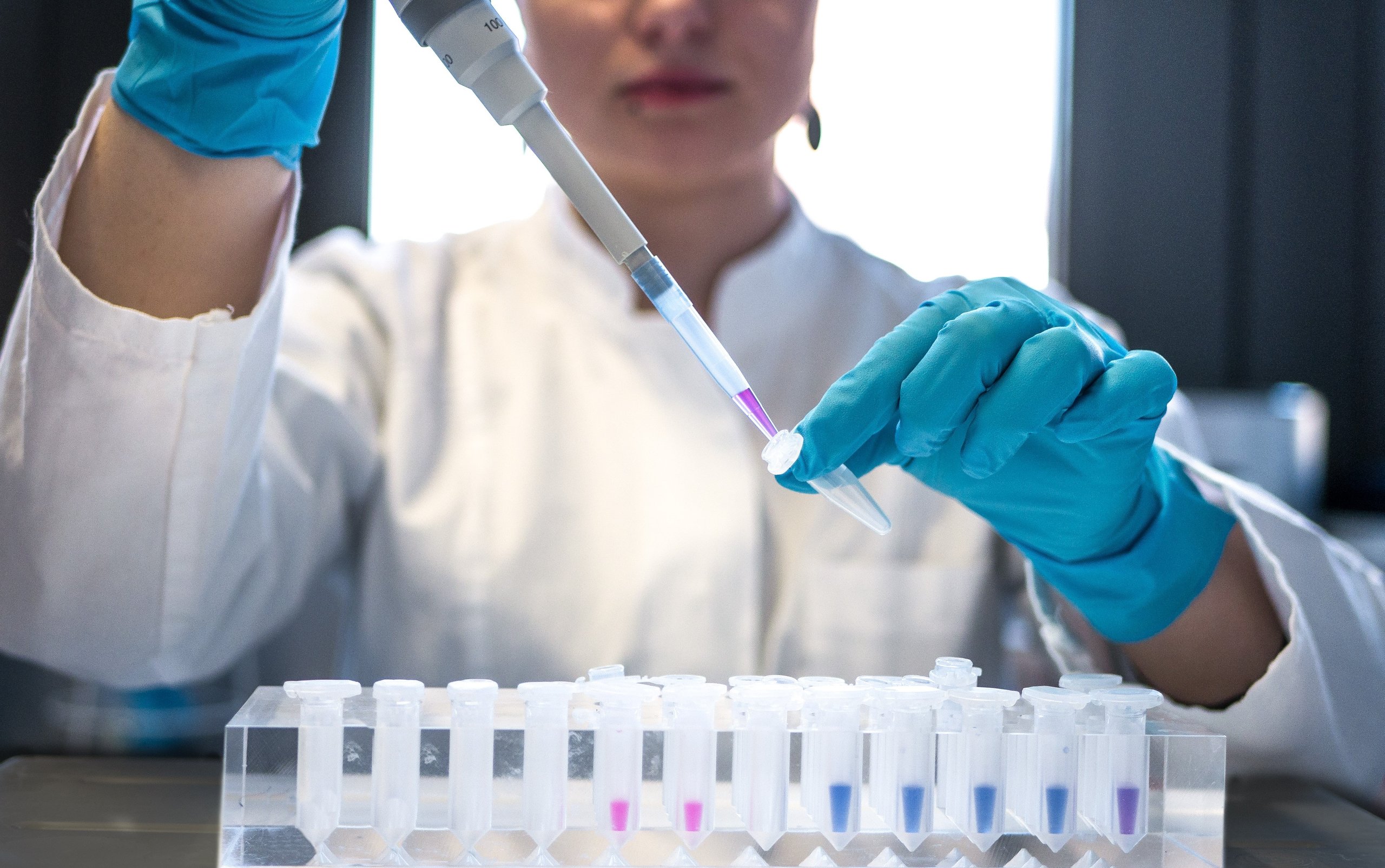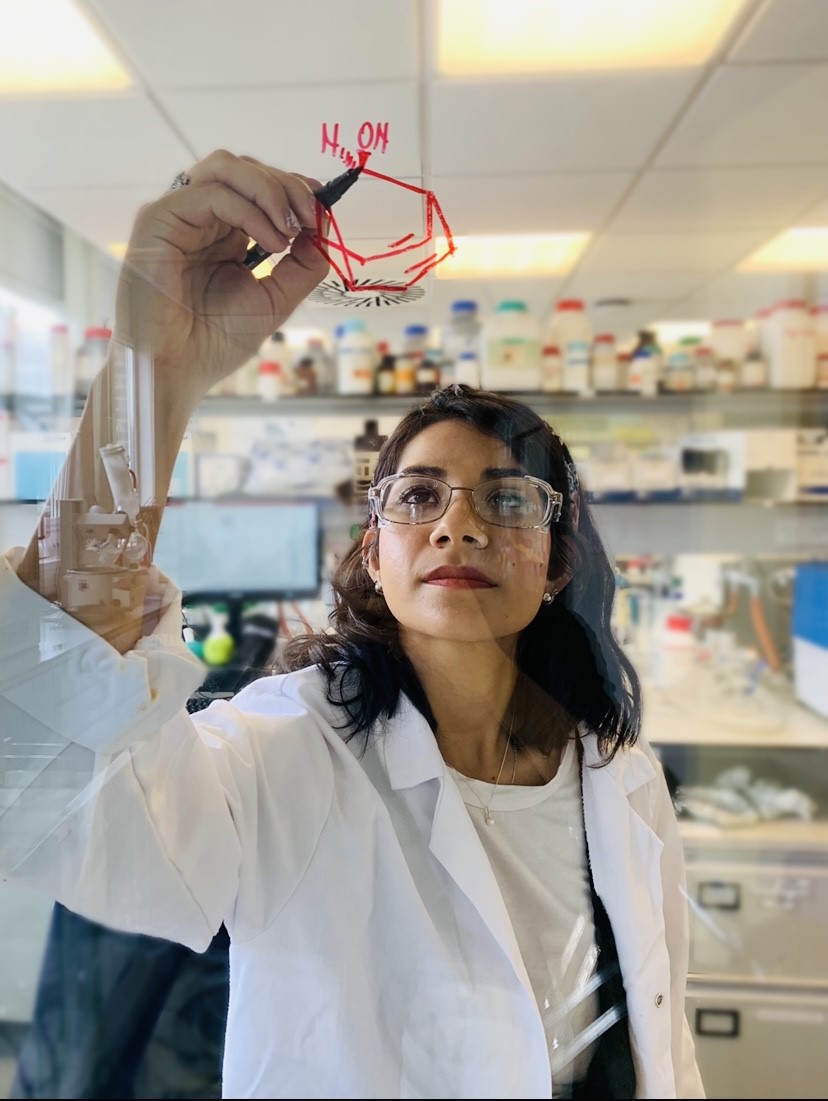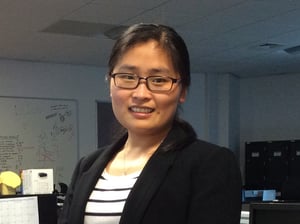August 5, 2021 – 20 min read
Ten outstanding women scientists have been shortlisted for the Rising Talents Award.
For Women in Science
Women scientists are leading ground-breaking research across the world, but despite their remarkable discoveries women still only represent 1/3 of researchers globally, and their work rarely gains the recognition it deserves.
The L’Oréal-UNESCO For Women in Science partnership was founded in 1998 with the simple belief that the world needs science and science needs women. Through its various editions across the world, the programme aims to help empower more women scientists to achieve scientific excellence and participate equally in solving the great challenges facing humanity.
UK and Ireland Rising Talents Awards
The post-doctoral period is a challenging time for women scientists as they work to establish themselves and forge paths towards a permanent research career. The UK and Ireland Rising Talents Programme is the national chapter of For Women in Science and is designed to provide flexible and practical financial support, alongside tools and support, for early career women scientists to pursue their research.
Five grants will be awarded to outstanding female postdoctoral scientists in the fields of Physical Science, Engineering, Mathematics and Computing, Life Science, and Sustainable Development. These fully flexible Fellowships are each worth £15,000 and are tenable at any UK or Irish university or research institute to support a 12-month period of research.
Meet the 2021 Shortlist
The standard of applications this year was exceptionally high, and we would like to thank all of the candidates who applied for this year’s Rising Talents awards.
The following ten researchers have been identified as the strongest candidates by the jury panel, based on their remarkable research and excellent academic records, and on how the Rising Talents grant will enhance their careers.
The five Rising Talents awardees will be announced on 15th September on the For Women in Science and UNESCO websites.
Please meet this year’s shortlist:
Engineering Prize
Dr Juanjuan Zhu
University of Sheffield
Dr Juanjuan Zhu is a research associate, working to understand the tribological behaviour of advanced engineering materials and the performance of mechanical machine elements. She completed her PhD in Mechanical Engineering at the University of Sheffield which focussed on the contact mechanics and mechanism of engineering interfaces, e.g., aircraft landing gear pin joints.
Dr Zhu’s research aims to explain the fundamental mechanisms behind a machine’s tribological behaviour and transfer the knowledge to the industry. With her research proposal, she intends to develop lightweight metal matrix composites and evaluate their performance when used in machines.
Dr Claudia Contini
Imperial College London
Dr CLaudia Contini is a research associate in Chemical Engineering at ICL and is Director of the Association of the Italian Scientists in the UK. She obtained a PhD in Physical Chemistry at UCL and a ISSF Welcome Trust Fellowship at ICL. Dr Contini has independently secured multiple research grants and numerous international awards, including her research in the UK being recognised by the Italian Embassy in London.
Dr Contini’s research aims to set inanimate matter in motion at the nano and microscale. Realising an artificial motile system, controlling its motion and mimicking the biological communication, will push the boundaries of scientific discovery and pave the way for biomedical applications.
Life Sciences Prize
Dr Qian Wu
University of Leeds
Dr Qian Wu is a structural biologist studying DNA repair. Dr Wu received her PhD from Professor Sir Tom Blundell’s group in the Department of Biochemistry at the University of Cambridge. She is currently a University Academic Fellow in the School of Molecular and Cell Biology at the Astbury Centre for Structural Molecular Biology at the University of Leeds.
Dr Wu’s research aims to understand the molecular mechanism of DNA repair for double-strand breaks and develop protein tools that enable us to investigate the regulation of repair pathway choice.
Dr Upasana Tayal
Imperial College London
Dr Upasana Tayal is a Cardiologist and Clinical Lecturer at Imperial College London. Her research focuses on heart muscle diseases (cardiomyopathies), using specialist imaging, genetics and clinical studies to understand why people get the condition and how we can improve outcomes for patients.
Dr Tayal will study the differences in the epidemiology, risk factors, and genetics between men and women with a heart muscle condition called dilated cardiomyopathy. Her aim is to improve the diagnosis, treatment and survival for all patients with this condition.
Mathematics and Computer Science Prize
Dr Vasiliki Koutra
Kings College London
Dr Vasiliki Koutra is a postdoctoral researcher at King’s College London developing methodology for the statistical design of experiments which is applicable in a wide variety of marketing, agricultural, healthcare and industrial contexts. Dr Koutra received her PhD in Statistics from the University of Southampton.
In her research, Dr Koutra will implement and critically assess methods to design experiments on large networks in order to allow for valid inferences and accurate results in the presence of viral effects.
Dr Daria Frank
University of Cambridge
Dr Daria Frank completed her PhD studies in Applied Mathematics at the University of Cambridge and completed her first post-doctoral appointment in Environmental Fluid Dynamics. In 2020, Daria became the Sultan Qaboos Early-Career Research Fellow and College Lecturer in Mathematics at Corpus Christi College in Cambridge. Dr Frank’s research focusses on fundamental environmentally motivated fluid dynamical problems related to turbulent and multiphase flows.
With her research proposal, Daria intends to study how multiphase jets and plumes transport contaminants and re-distribute them in the environment. The main goal is to understand how these flows can be actively controlled in order to protect our environment by either inhibiting or enhancing the contaminants transport.
Physical Sciences Prize
Dr Aisha Bismillah
University of Durham
Dr. Aisha Bismillah is a physical organic chemist working in the field of Supramolecular Chemistry. She gained her PhD degree from Durham University and was subsequently awarded a US–UK Fulbright Scholarship to undertake a postdoctoral position at Dartmouth College, USA, gaining experience with hydrazone switch-based reaction cascades. In 2021 she returned to Durham as a Leverhulme postdoctoral research associate. Dr. Bismillah also works to positively promote the role of women in STEM research by partaking in extracurricular activities such as outreach and mentoring.
Different sequences of atoms give different molecules with distinct shapes which is key to a molecule’s properties. Dr Bismillah’s research aims to design ‘shapeshifting’ molecules – which are able to adapt to match their surroundings – that mould themselves to match complex biological targets (e.g., a protein active site) implicated in disease.
Dr Jessica Wade
Imperial College London
Dr Jessica Wade is an Imperial College Research Fellow in the Department of Materials at Imperial College London. Her research considers new materials for optoelectronic devices, with a focus on chiral organic semiconductors. For her PhD Jess concentrated on new materials for photovoltaics and the development of advanced characterisation techniques to better understand their molecular packing. Outside of the lab, Dr Wade is involved with several science communication and outreach initiatives. She is committed to improving diversity in science, both online and offline.
The detection of weak magnetic fields is central to many technologies, from low-power computation and memory devices to brain imaging and materials safety testing. In an effort to realise low-cost, light-weight and ultra-sensitive magnetic field detectors, Dr Wade will make use of the remarkable properties of conjugated organic materials. Specifically, she plans to take an optical approach to magnetic field sensing via a magneto-optic phenomenon known as Faraday rotation.
Sustainable Development Prize
Dr Michelle Browne
Trinity College Dublin
Dr Michelle Browne is currently a Marie Skłodowska-Curie Individual Fellow in Trinity College Dublin (TCD), Ireland, under the mentorship of Prof. Valeria Nicolosi. In 2017, she obtained a Ph. in electrochemistry and materials science from TCD. From 2017 to 2020, Michelle conducted research in the field of electrochemical energy conversion in Queens University Belfast and in the University of Chemistry and Technology Prague as a postdoctoral researcher.
Dr Browne’s current research remit is focused on the production of green (clean) hydrogen in water electrolysers for the generation of electricity to replace fossil fuel-based energy production routes for various applications such as automotive and infrastructure. Her proposed research is focused on integrating electrolyser devices into academic driven water electrolyser research to develop inexpensive, scalable and sustainable materials to produce green hydrogen.
Dr Carmen Sánchez-Cañizares
University of Oxford
Dr Carmen Sánchez-Cañizares is an agronomist who specialises in plant microbiology. She completed her PhD on bacterial communication and competition at the Centre for Plant Biotechnology and Genomics in Madrid, Spain, and currently works on the regulation of bacterial metabolism as a posgdoctoral researcher at the Department of Plant Sciences, University of Oxford. She undertakes outreach and teaching activities and is a Director of the Society of Spanish Researchers in the United Kingdom..
Dr Sánchez-Cañizares’ research proposal aims to study the regulatory mechanisms that allow bacteria to make their own decisions and drive their activities relative to nutrient availability, external signals or stress conditions, ensuring their survival and adaptation to their environment. This proposal will provide fundamental insights into interactions between microbes and between microbes and their plant partners, allowing future optimisation of microbial function in agriculture.
Share this via…















